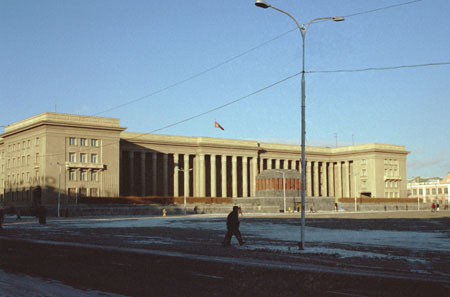Strasbourg, Elsaß-Lothringen
City Hall
28th August 1925
The 23 days since the end of the war had been trying ones for Sänger. The demobilization had to be planned and carried out, including a rough sketch of the integration. The military of the Union and of Germany had to be demobilized or integrated with each other, a task that was still not complete. Indeed, Sänger still awaited the final report of the joint staffs. The Reichstag had to deal with the sudden influx of Dutch delegates, to which a special election in the netherlands and Belgium had to be carried out. And of course, the question of territory had to be settled. Which was why he was now situated once more across the table from President Dupont, once more dealing with the question of Alsace-Lorraine.
Dupont and he had come to a rough agreement earlier on, one that Sänger thanked the stars for the Kaiser, overcome with joy at the success of the German army and of his son ascending to the thrones of Belgium and the Netherlands, had signed without too much protests and name-calling. Now all that was left was to sign the treaty, which lay on the great banquet table of the city hall.
Sitting across the table from Sänger, Alan Dupont felt an odd sense of kinship with his German counterpart. Despite their differences, despite the decades of enmity France and Germany had only recently put behind them, both men had spent their careers serving their respective nations. That duty had gotten a great deal more difficult in the last few weeks, what with the whirlwind of treaties, mobilizations, and wars. Still, the task of appeasing the French people was about to get much, much easier, all thanks to the uniquely reasonable viewpoint of the Reichkanzler.
The minor parties in the Senate, the last remnants of the Bonapartists, the Conservatives, even the right-leaning Simonists had demanded that the government do something about the layers of humiliation France's neighbors had heaped upon it. And now he would to so.
Results:Treaty between the Republic of France and the German Empire regarding the former Union of the Low Countries and other territories
The German Empire recognizes and respects the lawful claim of the Republic of France to territories in Belgium, Luxemburg and parts of Elsaß-Lothringen.
The French Republic recognizes and respects the lawful claim of the German Empire to the territories of the Union of the Low Countries and the right of Prince Eitel Friedrich to the throne of both the Netherlands and Belgium.
In order to guarantee a peaceful coexistence between the French Republic and the German Empire the following terms are accepted by the German Empire:
1. The German Empire will cede the Western Africa territories formerly belonging to the Union of the Low countries to the French Republic, to be theirs and to keep for as long as the German Empire and the French Republic exist.
2. The German Empire will also cede parts of Belgium to the French Republic, to be theirs and to keep for as long as the German Empire and the French Republic exist.
3. The German Empire will also cede parts of ELsaß-Lothringen to France, to be theirs and to keep for as long as the German Empire and the French Republic exist.
4. The German Empire will also cede Luxemburg to the French Republic, to be theirs and to keep for as long as the German Empire and the French Republic exist. All German noble houses hereby renounce all claims to the throne of the former Duchy of Luxemburg.
5. The German Empire will cede the former Dutch African Fleet to the French empire, composed of five Pantserships and 15 Wolf-class destroyers. The German Empire will also cede five armored cruisers, 30 Wolf-class destroyers and 10 submarines to the French Republic, as well as half the Union support fleet with a total of 300.000tons.
In order to guarantee a peaceful coexistence between the French Republic and the German Empire the following terms are accepted by the French Republic:
1. The French Republic recognizes the lawful possession and claim of the German Empire to all other Dutch territories named and unnamed in this treaty
2. The French Republic recognizes the right of the German Empire to all military and civilian assets of the former Union of the Low Country unless otherwise specified in this treaty
3. The French Republic guarantees the same terms as outlined in the Treaty between the German Empire and the Union of the Low Countries regarding the treatment of the civilian population.
4. The French Republic guarantees a demilitarization of the european territories gained in this treaty.
5. The French Republic will pay for German fortifications to protect their new border in the remaining territories of Elsaß-Lothringen.
The following terms are recognized by both nations:
In the event of one of the signatory nations being destroyed or otherwise ceasing to exist, the surviving nation will become the legal and rightful heir of the other.
Signed on the 28th August of the year of our Lord 1925,
President Alan Dupont,
on behalf of the French Republic
Dr. mult. Johannes Sänger, Reichskanzler
on behalf of the German Empire
New borders between the two nations:













